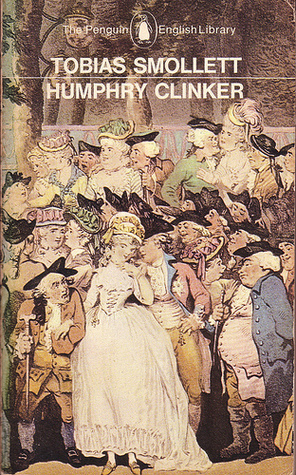What do you think?
Rate this book


414 pages, Paperback
First published June 17, 1771
For my part, I detest it [Bath] so much, that I should not have been able to stay so long in the place, if I had not discovered some old friends, whose conversation alleviates my disgust. Going to the coffee-house one forenoon, I could not help contemplating the company, with equal surprise and compassion. We consisted of thirteen individuals: seven lamed by the gout, rheumatism, or palsy; three maimed by accident; and the rest either deaf or blind. One hobbled, another hopped, a third dragged his legs after him like a wounded snake, a fourth straddled betwixt a pair of long crutches, like the mummy of a felon hanging in chains; a fifth was bent into a horizontal position, like a mounted telescope, shoved in by a couple of chairmen; and a sixth was the bust of a man, set upright in a wheel machine, which the waiter moved from place to place.
DEAR MARY,
Sunders Macully, the Scotchman, who pushes directly for Vails, has promised to give it you into your own hand, and therefore I would not miss the opportunity to let you know as I am still in the land of the living: and yet I have been on the brink of the other world since I sent you my last letter. — We went by sea to another kingdom called Fife, and coming back, had like to have gone to pot in a storm. — What between the frite and sickness, I thought I should have brought my heart up; even Mr Clinker was not his own man for eight and forty hours after we got ashore. It was well for some folks that we scaped drownding; for mistress was very frexious, and seemed but indifferently prepared for a change; but, thank God, she was soon put in a better frame by the private exaltations of the reverend Mr Macrocodile.